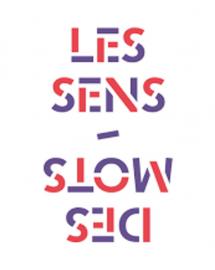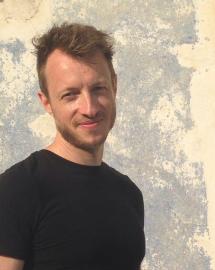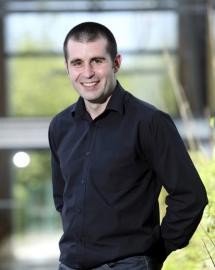Meeting of a scientist and a poet in polluted land
For ten years, the “Binôme” concept has nurtured an unexpected and invigorating dialogue between science and theatre. Nicolas Benoit, manager of remediation of sites polluted by radioactivity at Andra, and Marc-Antoine Cyr, playwright, lent themselves to the game. From their timed meeting was born “Get rid of it”. After the off of the Avignon Festival in 2021, the play will be on stage at the Parisian theater of the Reine Blanche on March 18. Interview.
 The challenge proposed by "Binôme" is significant. Two protagonists who do not know each other meet. One is a scientist, the other is a playwright. They are gathered in a place chosen by the first and kept secret until the last moment for the second. At the start, they have 50 minutes to discuss a scientific subject, of which the playwright likelyignores everything. But it is up to him, six weeks later, to recount this improbable encounter in a work of fiction, the staging of which will be revealed – including to the pair – only at the first performance. The public, which in turn is unaware of the subject of the play, will be invited to debate at the end of the show. The surprise plays out… from start to finish!
The challenge proposed by "Binôme" is significant. Two protagonists who do not know each other meet. One is a scientist, the other is a playwright. They are gathered in a place chosen by the first and kept secret until the last moment for the second. At the start, they have 50 minutes to discuss a scientific subject, of which the playwright likelyignores everything. But it is up to him, six weeks later, to recount this improbable encounter in a work of fiction, the staging of which will be revealed – including to the pair – only at the first performance. The public, which in turn is unaware of the subject of the play, will be invited to debate at the end of the show. The surprise plays out… from start to finish!
Neurosciences, demography, immunology, neurophysics, etc. The field of experimentation of the “Binôme” project is vast. And the concept imagined by the company Les Sens des mots and its director Thibault Rossigneux has borne fruit: 43 plays, born of as many unusual encounters between science and poetry, exist to date. Sometimes surreal, often funny, they reshuffle the cards of discourse and shift the boundaries between disciplines.
"Getting rid of it" – product of the meeting between Marc-Antoine Cyr and Nicolas Benoit on a former polluted site – is one of them: or how to talk about the clean-up of sites polluted by radioactivity, through the he story of a couple, Arsène and Henri, trying to abandon Muguette while a mysterious construction site is taking place around...
This is the first time that you have participated in the Binôme project, how did you approach this experience?

Marc-Antoine Cyr:
I already knew about the project, having attended it as a spectator. I was looking forward to Thibault Rossigneux asking me to participate one day. I do not have a very developed scientific mind, but any form of constraint and writing challenge tickles me. When you approach a creative project, the more constraints you have, the more you find your anchor, your path. So I went there with a lot of curiosity and naivety.
Nicolas Benoit:
I welcomed this proposal with a bit of embarrassment and quite a bit of surprise. I am used to being approached by journalists, but talking about my job to a playwright? This is rather unusual in my professional context. But why not ! Once the appointment was blocked, I was very impatient to meet my partner.
How did you prepare for this meeting?
N. B.: I often have the opportunity to talk about my job to audiences who are far from it. And by dint, "popularizing" this complex scientific subject has become a habit. Before the meeting, I chose three objects that were to illustrate my point: an old alarm clock, a book on the history of radioactivity published by the Curie museum, and a sign on which I had written: "Thank you". Because that's often the word people say to me at the end of a clean-up operation.
MY. C.: For my part, I was completely taken by surprise. The day before the meeting, I received a roadmap: I had to go to an address from where I would leave by car to the place of the meeting. I knew that the subject would be totally foreign to me... and until the last second, I didn't know what we were going to talk about, or what I was doing there, in the middle of the forest. These schemes are part of the game! They are used to create sparks during the match.
How did you experience the meeting?

MY. C.: I took notes, I watched for the slightest sign, the slightest word that could inspire me. My mind was awake. I did not find myself facing someone who did not speak my language. Our conversation was very simple: we didn't get lost in data, calculations, formulas. Nicolas had stories to tell me: his meetings with the occupants of polluted sites, the years spent identifying pollution, the historical dimension of his job with the "crazy years of radium"... It was already material to fiction! After 50 minutes, the conversation stops and I leave to write in my corner…
NB: I was on familiar ground, but I was watching for Marc-Antoine's reactions: his astonishment, his concern too, when I make him understand that we were on a site that had been cleared radioactive. At first I talked a lot, but soon enough our conversation turned into a question and answer game. When the 50 minute gong rang, it felt like we had been talking for 10 minutes.
Following the meeting, how does the creative process unfold?
MY. C.: I no longer have any contact with Nicolas, and only a month and a half to write a 30-minute play. Do not get lost in testing, and go straight to the point. I'm a little mocking... and I wondered how we could draw a concrete thread from this story of "matter" which is difficult to get rid of. In life you can be with someone, break up and lose sight of that person, but the one thing you will never get rid of is your child. There was a way to deal with this idea in echo, while keeping close to the subject of our exchanges...
An author has a limited imaginary territory. It's always the same obsessions that come back. This was also the interest of this experience: to see how my favorite subjects would resonate with a scientific subject that has nothing to do.
Nicolas, what was your reaction to reading the play?
N. B.: When I read the play the first time, Marc-Antoine was not there. At first, I was a bit confused and had a hard time figuring it out. Then I started to understand where he was coming from… and I loved: the humor, the cynicism of the play. The references to radioactivity, and all the finesse of the subjects he tackles implicitly. It's powerful!
MY. C.: For the reader, the text is a bit of a treasure hunt… And I didn't want to take myself seriously. The playful side, the friction of our two worlds is part of the experience.
At the end of the performance, the public is invited to express themselves, how did you react. And the public?
MY. C.: Once the text is sent to the company, the secret is still maintained: we don't know how the text will be staged. We discover everything at the same time as everyone else. You have to accept to let yourself be carried away! There were people in the room concerned with the subject of land contaminated by radioactivity. The public was divided: there were those who found that I had gone too far and those who thought, on the contrary, that the subject was everywhere. I love having discussions! The public was also very interested in Nicolas' profession.
NB: It's not so easy to manage to make the link, but the messages have passed: the work that we undertake on the sites polluted by radioactivity, the equipment and the material that we use... and I felt the public very interested. We managed to break the ice to talk about this subject, and the discussion was not controversial, the debate remained open. It was a very nice experience and I didn't think I would enjoy it so much.
At Andra, innovative initiatives to raise public awareness
Theatre… but also cinema, literature, photography, video… To pursue its objective of informing and mobilizing as many people as possible, Andra is in contact with many actors at the national level who relay issues related to to the management of radioactive waste.
Artists, authors participate, comment and debate these subjects. Links and initiatives that make it possible to sustain a multifaceted dialogue around the issues related to the management of radioactive waste.

